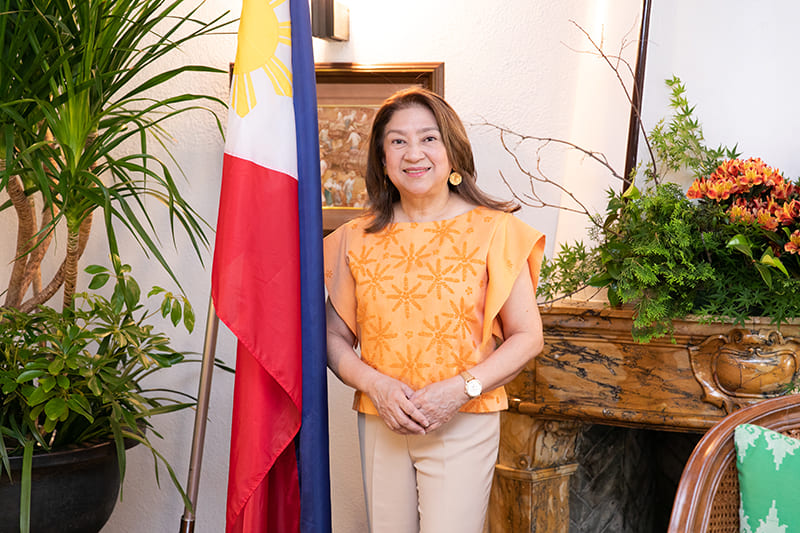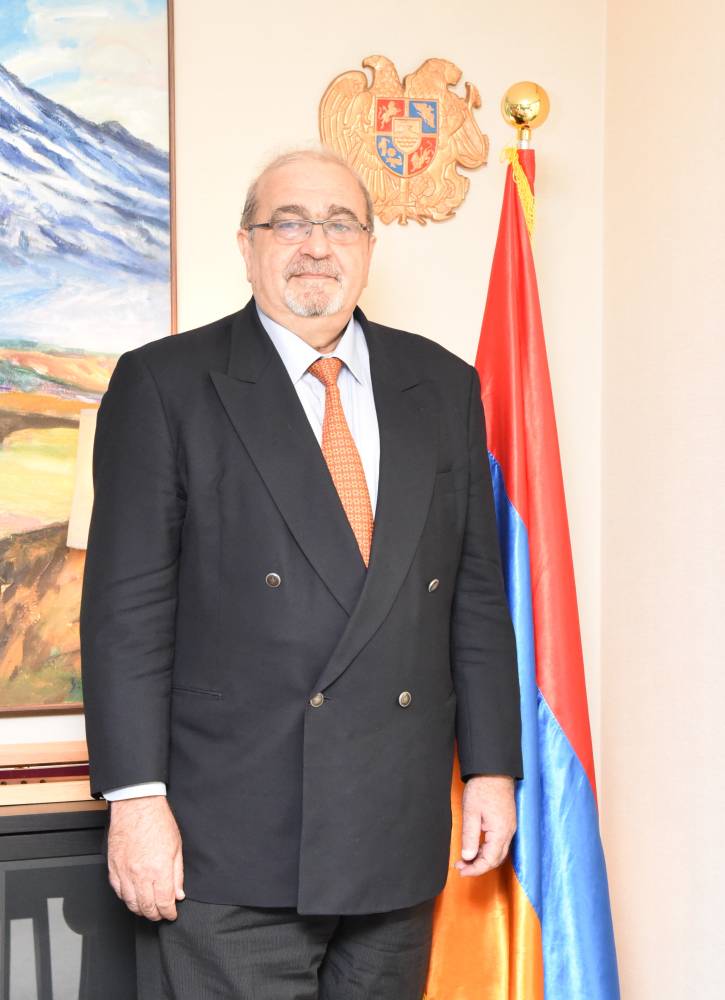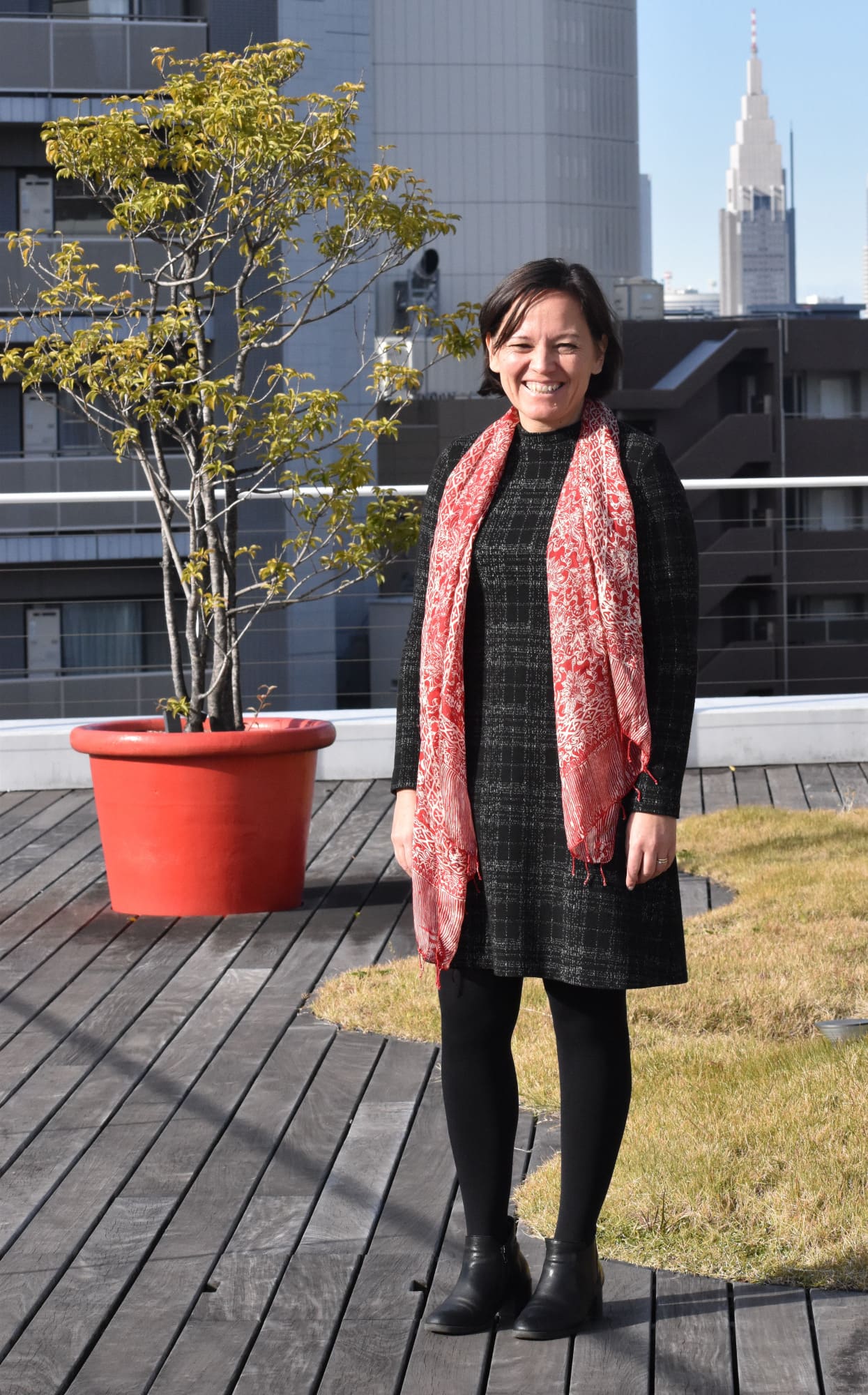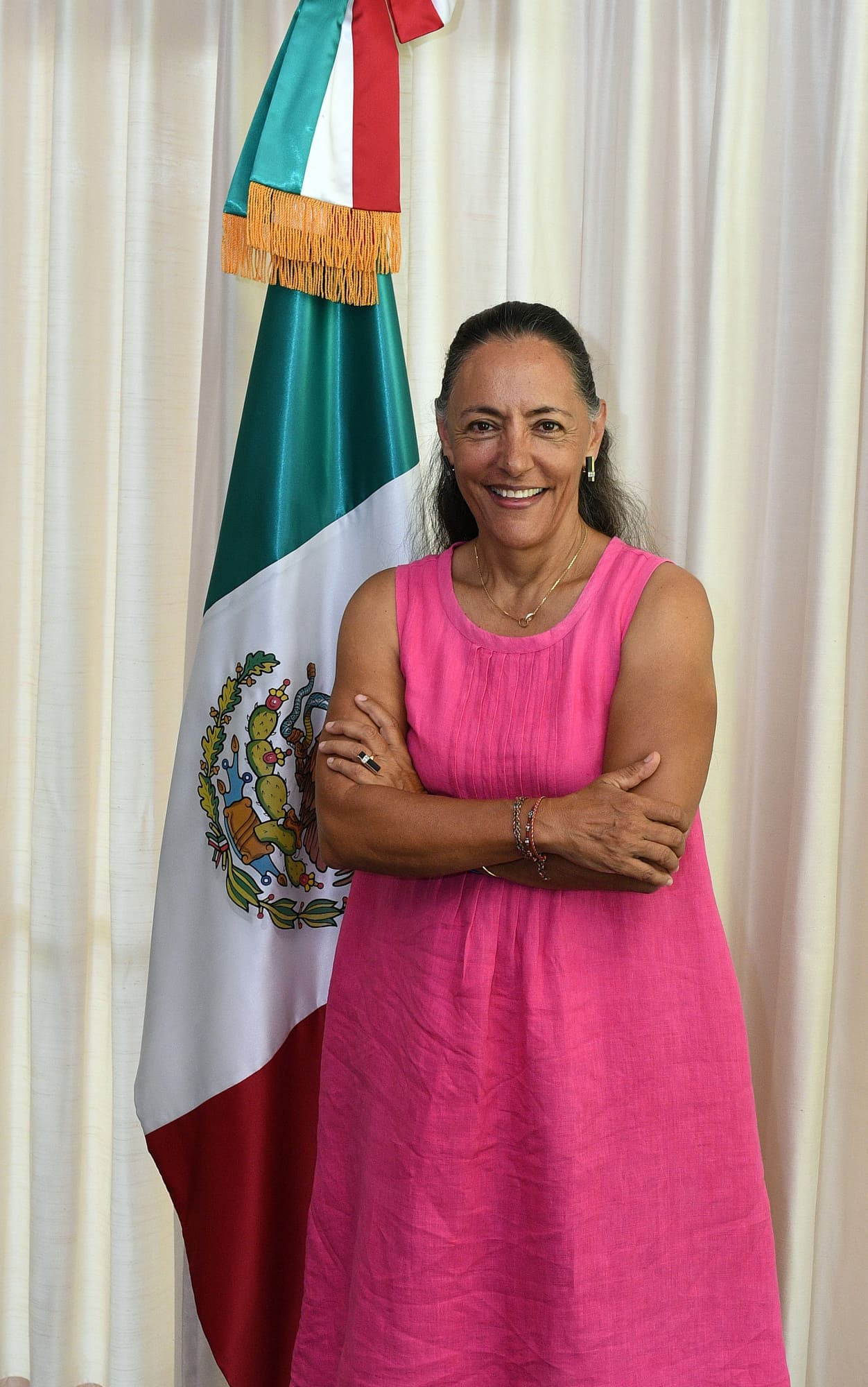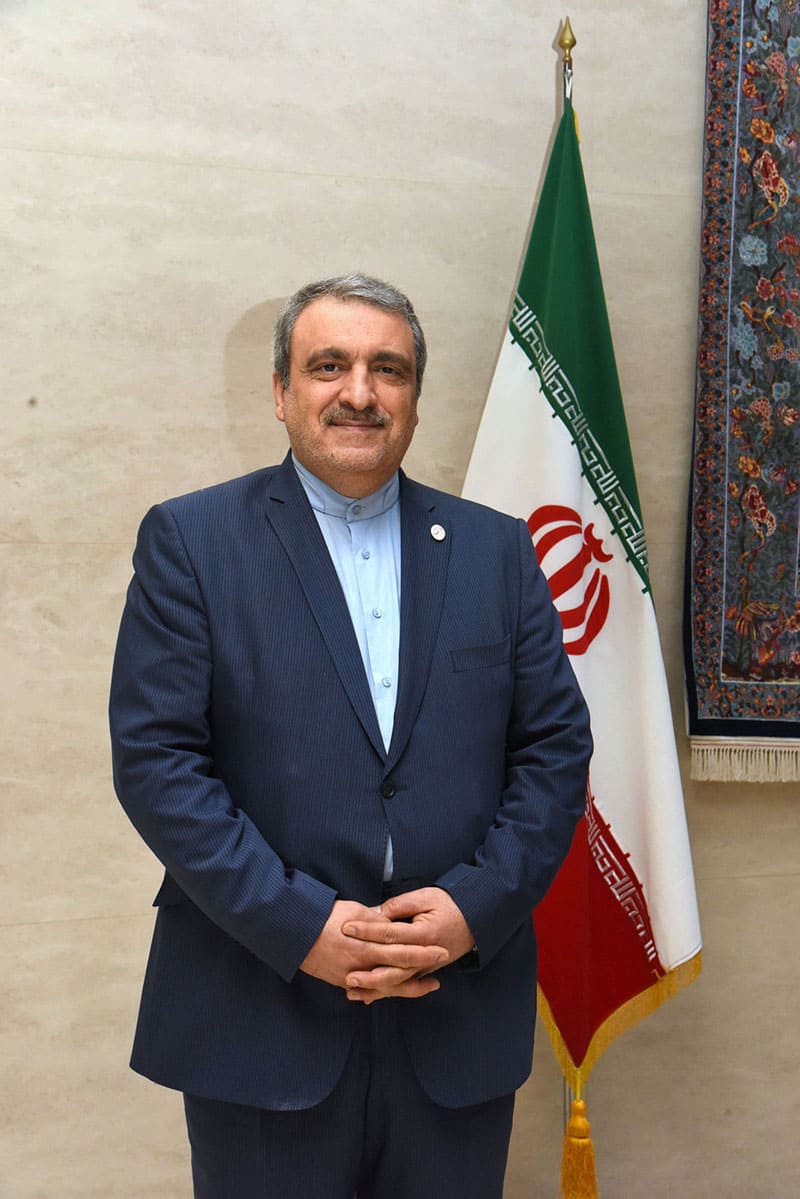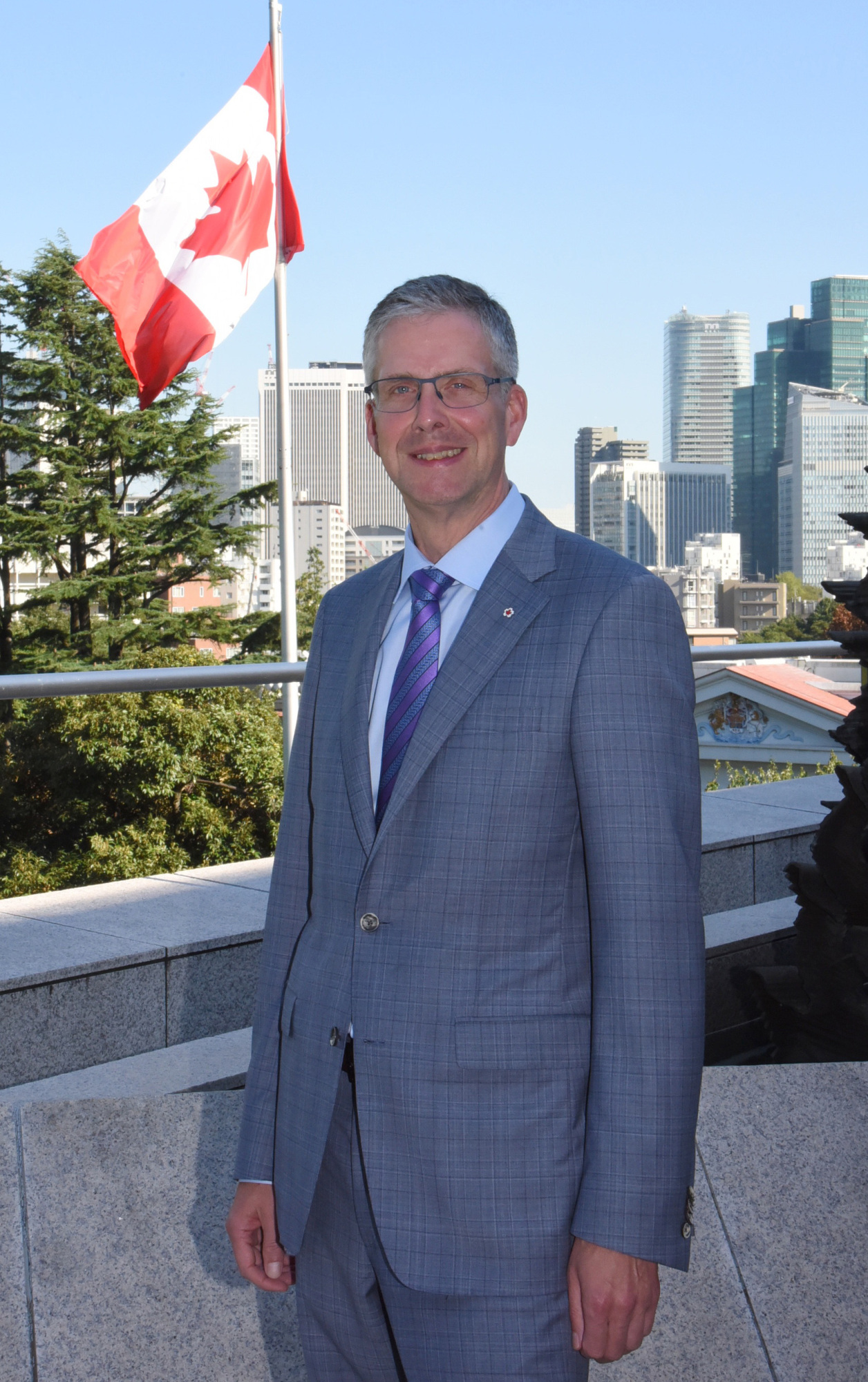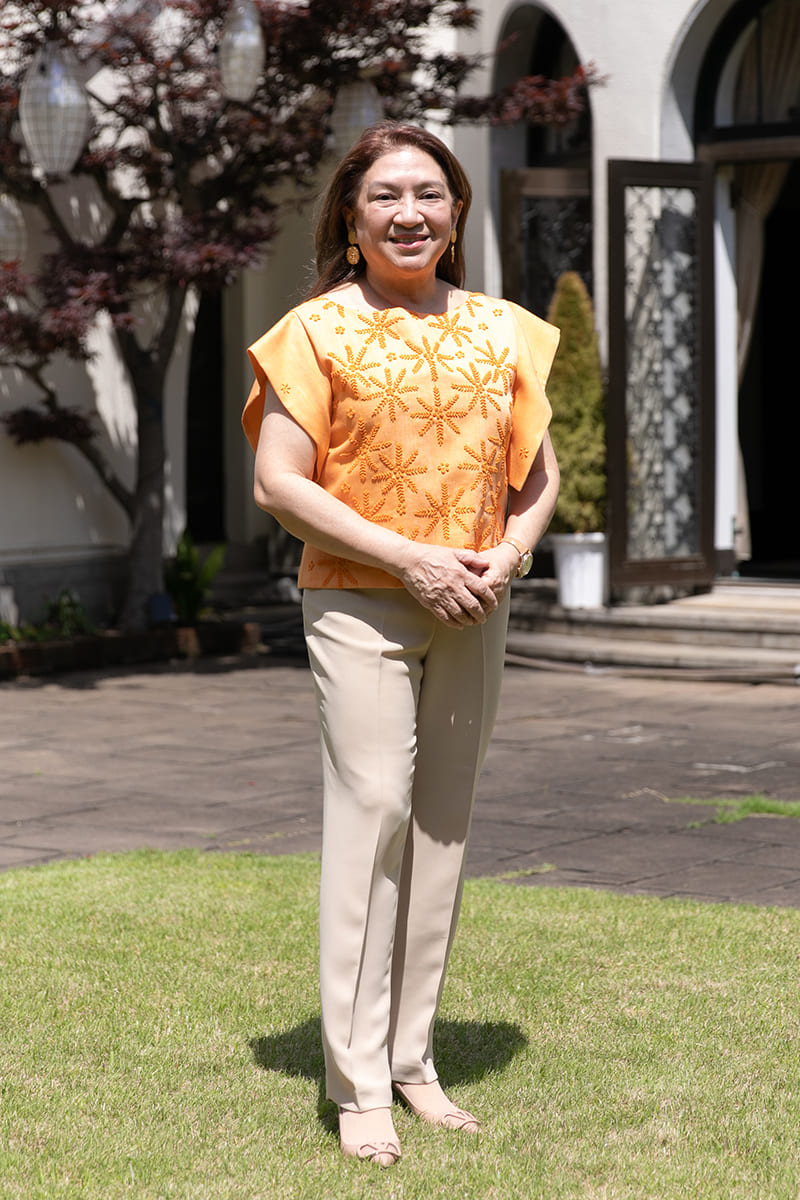
August 02, 2024
Philippine envoy highlights climate and smart farms
Mylene de Joya Garcia-Albano also will pilot online voting in 2025
- Name: Mylene de Joya Garcia-Albano
- Title: Ambassador of the Philippines to Japan
- URL: https://tokyo.philembassy.net
- Hometown: Davao
- Years in Japan: 1
Mylene de Joya Garcia-Albano arrived in Tokyo at the end of 2022 to take up her position as ambassador of the Philippines. Not only is this Garcia-Albano’s first diplomatic posting, but she is also her country’s first female ambassador to Japan. Initially trained as a lawyer, she swapped a career in corporate law for a government role in 2000, and went on to serve three terms as a member of Congress in the House of Representatives before coming to Japan.
Garcia-Albano has created a legacy of bringing people together and giving them a voice while proactively seeking out ways to improve lives and outcomes for those she represents. She talked to The Japan Times about insights gleaned from her career, as well as how she is building upon a solid foundation of cooperation between the Philippines and Japan.
The interview took place at the ambassador’s residence in Chiyoda Ward, which has been used by the Philippines’ foreign service since 1944. Inspired by Spanish architecture and surrounded by a lush garden, the charming white villa was built in 1934 by Baron Zenjiro Yasuda. The prominent businessman was a relative of Yoko Ono, who is said to have visited the house as a child. Garcia-Albano has decorated the interior with furniture and artwork she brought from the Philippines, and she is overseeing improvements to the garden, including restocking the formerly neglected pond with colorful Japanese koi.
Garcia-Albano hails from the city of Davao on Mindanao. The region has hosted a sizable Japanese population since the 1920s, when people migrated from Japan to engage in the production of abaca, a banana-like plant harvested for its fibers. “I had Japanese classmates in grade school, and I remember how we used to exchange stickers and stationery, and that was really my first connection to Japan. The Japanese stickers and pens were so cute!” she recalled with a smile.
Having made frequent visits to Japan both as a tourist and on business, Garcia-Albano feels fortunate to have arrived just as things were opening up again at the tail end of the pandemic. “I wanted to look at the way the embassy conducted relations with our citizens, of which we have around 300,000 all over Japan. I’ve been reaching out to let them know what we are doing, and finding out how we can support them,” she said.
These activities include taking a mobile van on the road to visit Filipino communities around the country, with representatives from both the embassy’s consular section and the labor section — the latter for the first time. Garcia-Albano herself has been participating in some of the trips, and has welcomed the chance to get to know her fellow Filipino citizens in Japan and learn about their lives. The embassy will be piloting online voting from Japan for the upcoming Philippine elections in 2025.
Garcia-Albano has also been busy meeting with Japanese officials and hosting government delegations since assuming her post. “We had an official visit from President Ferdinand Marcos in February 2023, so I hit the ground running, establishing relationships with national agencies and reaching out to members of the Japan-Philippines Parliamentary Friendship League,” she recalled.
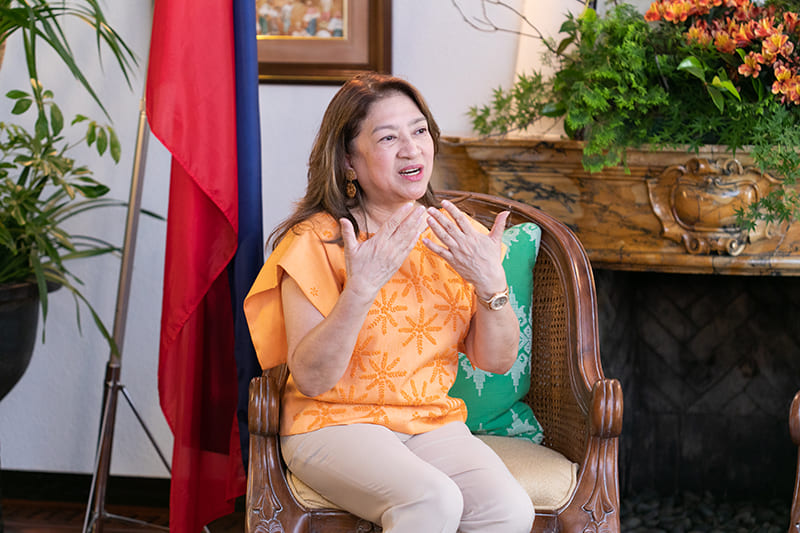
The JPPFL was formed in 1986 to advance legislative initiatives between Japan and the Philippines. Japan has been an important partner for the Philippines, facilitating the development of agriculture and infrastructure through the assistance of entities such as the Japan International Cooperation Agency.
Garcia-Albano was also instrumental in planning the visit of Prime Minister Fumio Kishida to Manila last November, and the participation of President Marcos Jr. in the celebration of the 50th ASEAN-Japan anniversary in December in Tokyo. A memorandum of cooperation between the Ministry of the Environment of Japan and the Department of Environment and Natural Resources of the Philippines was signed during this visit.
“The Philippines and Japan share the fact that we are very vulnerable to natural disasters, so we have been working together, learning from Japan about the best way to deal with the effects of climate change and disasters,” she said. “We are also looking forward to learning from Japan’s smart agriculture and how we can do things in a more sustainable way.” Moreover, Japan is providing funding and technical support for the first subway in Manila, part of a national project to ease traffic congestion and air pollution in the metropolitan area. The first stations in the Metro Manila Subway are expected to start operation next year.
While Garcia-Albano’s role in Japan is keeping her busy, she still takes a keen interest in initiatives to help former constituents back home, particularly with outreach for Davao’s Indigenous tribal communities. “I worked to help them get access to resources and to preserve their culture by producing and marketing their crafts. A lot of younger people were leaving the communities to go to the cities in search of jobs, and so it was important that we were able to document their cultural practices,” she explained.
One of these cultural traditions is weaving, and Garcia-Albano assisted with obtaining funding for the purchase of more looms. Beautiful handwoven shawls from Davao were presented to guests at a recent function hosted by the embassy to mark the Philippines’ Independence Day on June 12.
Another important event is the annual Philippine Festival, which takes place at Yoyogi Park in late November or early December. Held in collaboration with the local Filipino community and the Philippine Embassy and open to the public, the two-day festival features a variety of Filipino dishes, products, and music and dance performances, along with tourist and business information.
Whether connecting with Filipino nationals scattered throughout Japan or with isolated communities in Davao, Garcia-Albano finds herself naturally gravitating toward anyone who can use a helping hand. “It connects to my background as a legislator. I don’t wait for them to ask; I try to figure out the issues they may be experiencing and try to identify solutions.”
The ambassador is happy to savor the opportunity to be in Japan for now, and wants to continue making the most of any opportunities that may come up. “I’m sure I’ll look back on my experience here and the people I’ve met, and I will probably continue to try something connected with Japan in the future,” she said.
